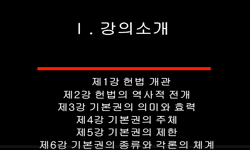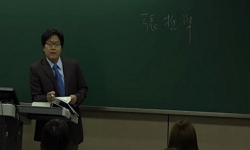This paper deals with surrogacy as part of assisted reproductive technology (ART) from a constitutional perspective. In particular, it focuses on constitutional justifications for surrogacy revolving around fundamental rights of individuals involved s...
http://chineseinput.net/에서 pinyin(병음)방식으로 중국어를 변환할 수 있습니다.
변환된 중국어를 복사하여 사용하시면 됩니다.
- 中文 을 입력하시려면 zhongwen을 입력하시고 space를누르시면됩니다.
- 北京 을 입력하시려면 beijing을 입력하시고 space를 누르시면 됩니다.
https://www.riss.kr/link?id=A99786277
- 저자
- 발행기관
- 학술지명
- 권호사항
-
발행연도
2013
-
작성언어
-
- 주제어
-
KDC
300
-
등재정보
KCI등재
-
자료형태
학술저널
-
수록면
207-237(31쪽)
- DOI식별코드
- 제공처
- 소장기관
-
0
상세조회 -
0
다운로드
부가정보
다국어 초록 (Multilingual Abstract)
This paper deals with surrogacy as part of assisted reproductive technology (ART) from a constitutional perspective. In particular, it focuses on constitutional justifications for surrogacy revolving around fundamental rights of individuals involved such as clients, surrogates, and newborns. Surrogacy boosted by the advance in ART is recognised to be helpful to some degree for converting to reality the hope of couples who want to have a baby. However, it creates not only its own ethical concerns but also legally difficult problems due to its various patterns. In addition, human rights issues including the fact that women from poor countries are exploited as a means of surrogacy cannot be overlooked. In this light, it is necessary to discuss constitutional justifications for surrogacy itself prior to arguing over numerous individual laws related. Surrogacy can be subject to the right of self-determination pertaining to the right to persue happiness guaranteed by the Constitution while it can be subject to restrictions on fundamental constitutional rights. Especially, putting aside whether the right to have a baby through surrogacy should be recognized or not, a focus should be placed on limiting the right because surrogacy may infringe on rights and interests of the third party who is asked to be a surrogate mother. In the case of violating the third party`s rights, a client cannot claim his or her own ``right to have a baby`` Although a surrogacy contract itself is thought to be valid, it will become null when the contract is subject to a legal violation or is interpreted as being against public policies. Moreover, the women to be surrogate mothers might understand the content of the contact and sign it of their own free will but there are not a few cases that they inevitably accept it due to economic problems including poverty. Therefore, even though people have reproductive rights and the right to have children, the privilege to fulfil their hopes by employing others who are under financial pressure should not be allowed. Regarding surrogacy, it is required to have broader perspectives and profound insights with which not only the right of self-determination but also the dignity of an individual as a human being, irreplaceable with any other things, the nature of human rights, child`s interests, social benefits or the role of a nation are all considered comprehensively. In this way, answers to many legal issues surrounding surrogacy can be found and conclusions of constitutional debates can be reached.
동일학술지(권/호) 다른 논문
-
- 홍익대학교 법학연구소
- 남옥매 ( Yu Mei Nan )
- 2013
- KCI등재
-
- 홍익대학교 법학연구소
- 최성호 ( Sung Ho Choi )
- 2013
- KCI등재
-
- 홍익대학교 법학연구소
- 박광현 ( Kwang Hyun Park )
- 2013
- KCI등재
-
재판청구권의 실질적 보장을 위한 소고 -수용자의 경우를 중심으로 한국과 미국의 논의 비교-
- 홍익대학교 법학연구소
- 조수혜 ( Soo Hye Cho )
- 2013
- KCI등재





 KCI
KCI KISS
KISS







